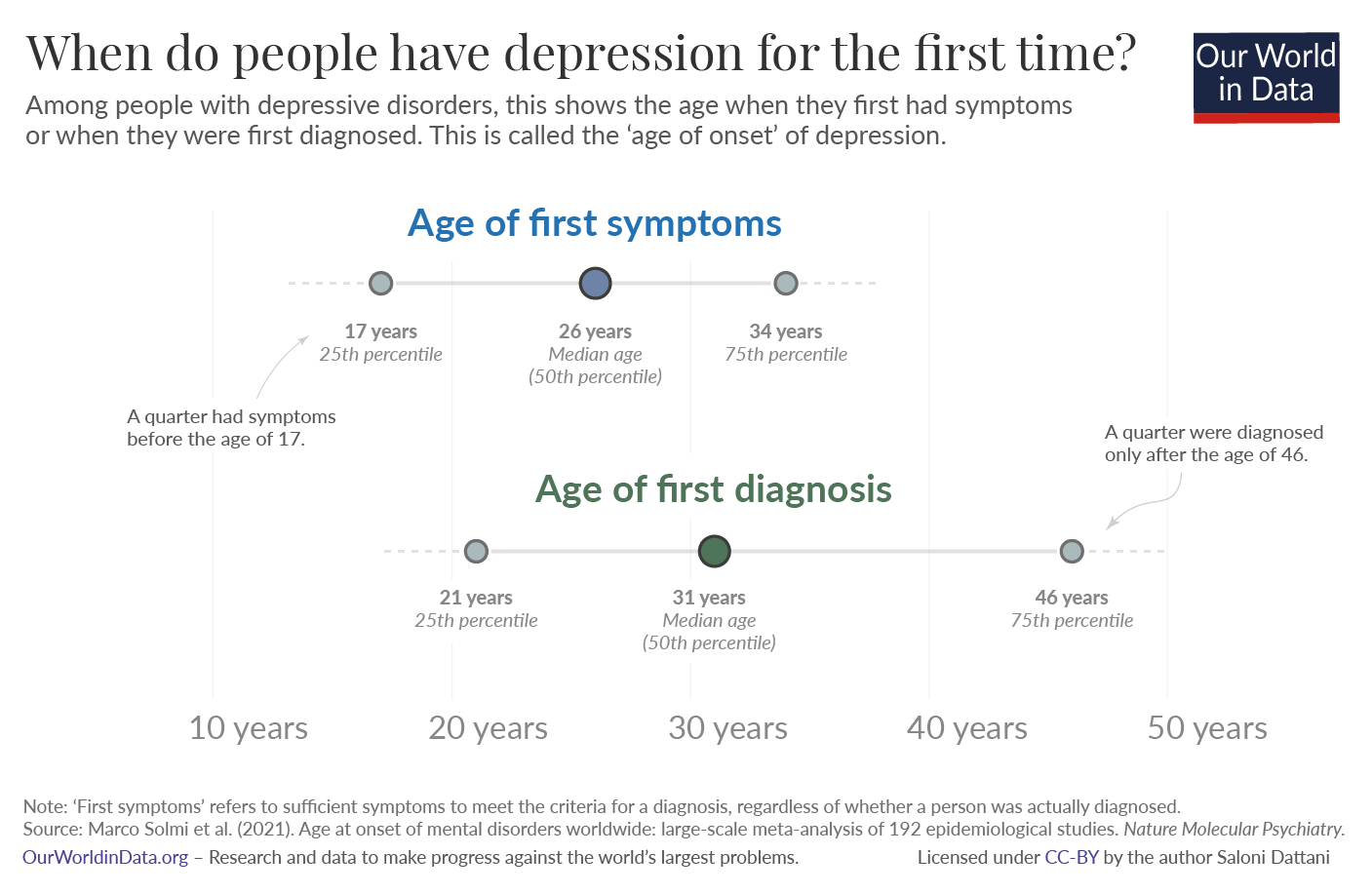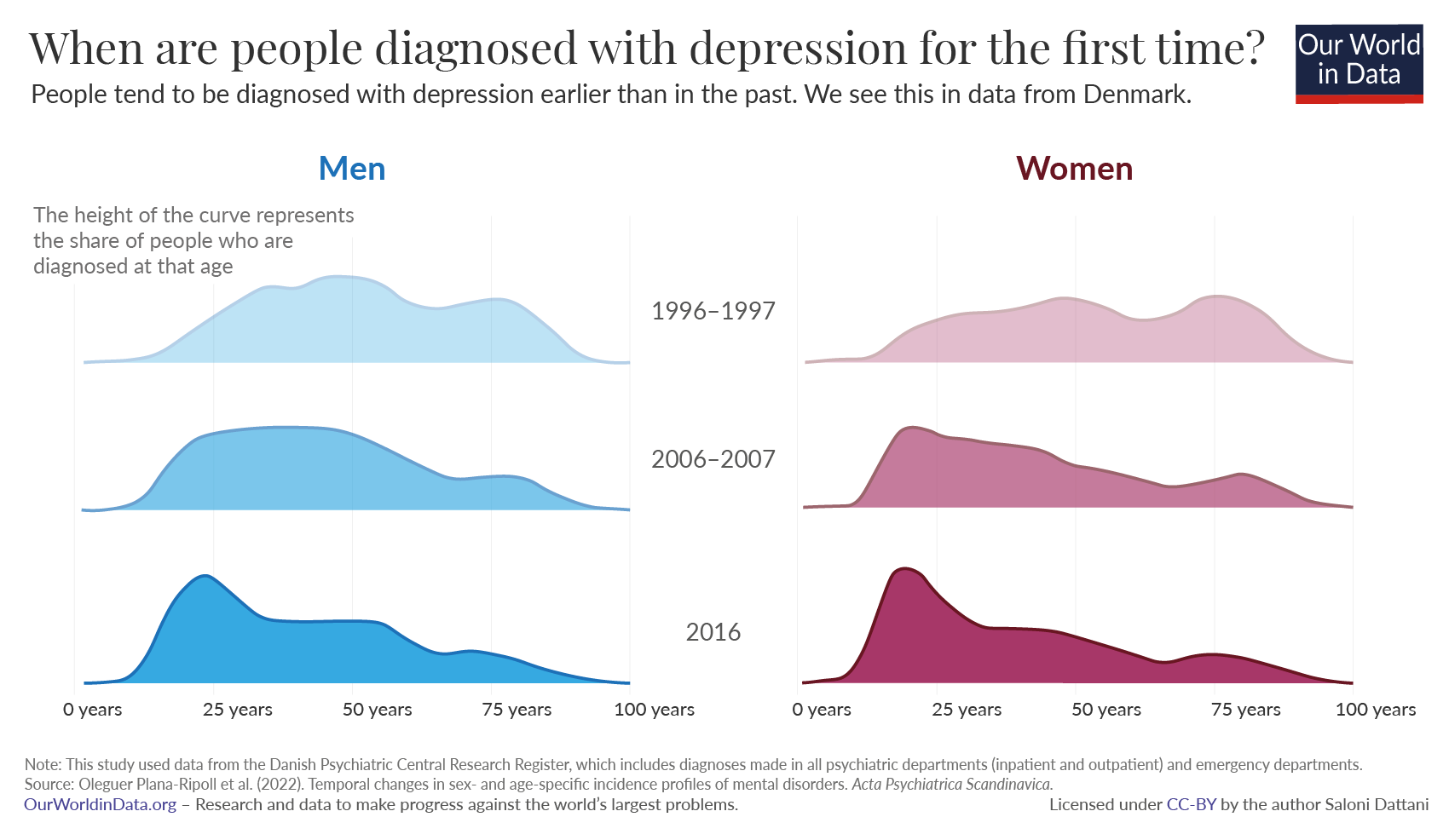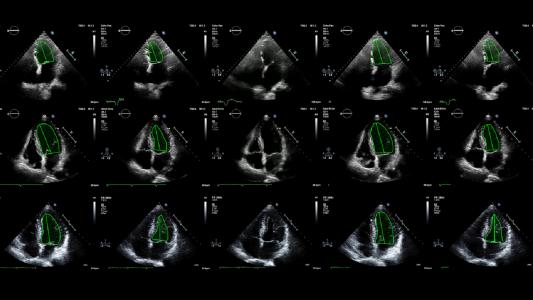Depression can affect people over long periods of their lives. Some people experience this condition continuously, while for others, it occurs in episodes – with long stretches without symptoms.
But when do people tend to experience it for the first time?
The age when people experience depression for the first time is called the ‘age of onset.’
But this can be measured in different ways. One way is to find out when people first had the symptoms of depression. This is done by interviewing them about symptoms they have had in their lives so far – some people describe having symptoms in the past that meet the diagnostic criteria of depression. Another way is to find out whether people have been diagnosed with the condition, and the age when they were diagnosed with it for the first time.
This chart shows the age of onset of depression based on a meta-analysis by Marco Solmi and colleagues. The researchers combined data from studies that took place around the world.1
As the data shows, on average, people experienced the symptoms of depression 5 years before they were diagnosed. When measured on the basis of symptoms, the median age of onset was 26. When measured on the basis of a diagnosis, the median age of onset was later, at 31 years old. The data also shows that there is a wide range for both symptoms and diagnosis. One quarter had not experienced symptoms before the age of 34. For diagnosis this was even later: one-quarter were not diagnosed before the age of 46.

People are diagnosed earlier than in the past
In many countries, mood disorders such as depression and bipolar disorder are being diagnosed earlier than they were in the past.2
We see clear evidence of this in the data in the chart.
This data comes from a study conducted in Denmark, which looked at the age when people were first diagnosed with mental disorders. They used data from across the population.3
In 1996 the age of diagnosis varied widely. Young, middle-aged and old people all had a similar chance of being diagnosed with depression for the first time. By 2016, people were diagnosed much earlier. They were much more likely to be diagnosed with depression when they were young adults than later in their lives.
There are several reasons that this age distribution has shifted.
First, people have become more willing to seek treatment for mental health conditions.4
Second, there are more guidelines on how to diagnose conditions in children and adolescents than in the past. In Denmark, children and adolescents have become more likely to be seen by professionals and screened for mental health conditions, and have regular check-ups for psychiatric symptoms at schools.5
This means they are more likely to be diagnosed during their first episode of depression. In the past, they may have been diagnosed later – perhaps when they were actually having their second or third episode – or not diagnosed at all.

Our understanding of the age of onset of mental health disorders is important, because mental health screening and treatment are often guided by age. They are limited for young people in some countries.6
By recognising that depression can occur early in life, we will have a greater ability to help those who need it.
Republished with permission of Our World In Data under a Creative Commons license. Read the original article.






